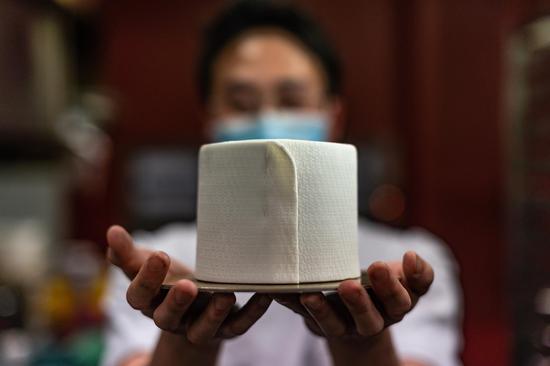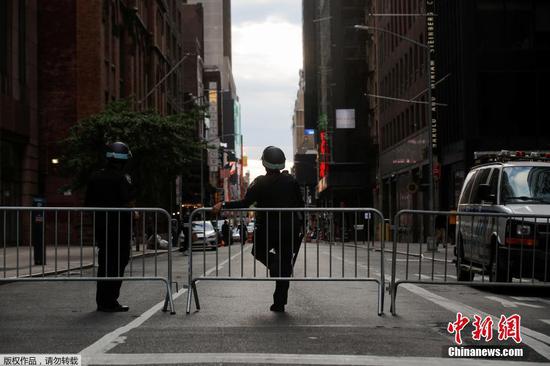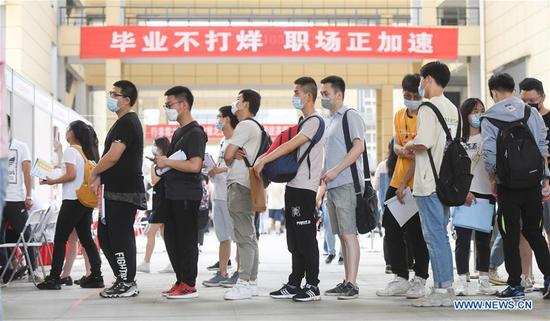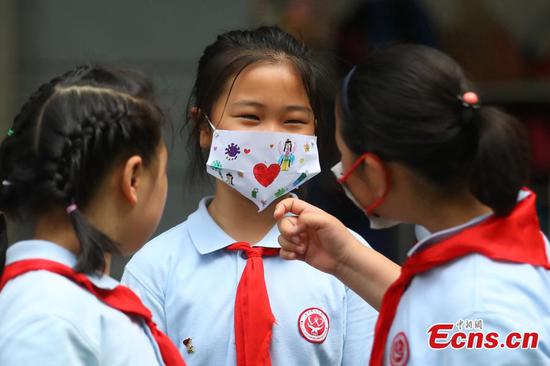For many Chinese students, getting admitted to an overseas university is a cause for celebration. But as the coronavirus pandemic carries on, for the first time in decades, students are having second thoughts after getting an offer.
At New Oriental Education and Technology Group, China's biggest English education service company, Sun Tao, president of the company's Vision Overseas Consulting Branch, said COVID-19 has become the biggest concern for Chinese students who are considering studying abroad, as many foreign universities are still locked down, with concern about a potential second coronavirus wave.
According to a survey of its students, Sun said "among all who secured an offer from UK universities, about 75 percent will decide to go to the UK and enroll if the UK opens its doors, another 20 percent probably will put off their enrollment until next academic year, and only a very small percent, about three to four percent will decide to give up their UK studies all together."
For students who still plan to continue overseas studies, concerns remain.
Li Botao, a Chinese student who just got an offer from Leeds University, said, "My biggest concern will be the classes, because I will take one year of graduate school. I'm afraid maybe half the time I'll be in online courses, which I don't really prefer. You know it's only one year in the UK, I want to go to the UK, see the professor, and do what they ask us to do."
Ma Zhaoying, who got an offer from Oxford University, said: "I've been a little bit worried over the last few months, but in June the visa center reopened ... so I think my choice will be to go."
"The most affected students are my classmates who are going to the U.S., most of whom are worried because of the visas for graduate students and Ph.D students are said to be cancelled for security issues," she said.
COVID-19 is not the only factor impacting the overseas education market. As the U.S.-China trade war escalates, the U.S. government announced it will tighten Chinese students' visas. They have listed a number of Chinese universities for sanctions and banned Chinese students focused on certain majors from studying in the U.S.
"The policy will not be aimed at the vast majority of Chinese students. I mean only a very small number of Chinese students will be affected by this policy. But this policy will give us a very bad image of the U.S. education and the U.S. attitude towards Chinese students," said Sun Tao.
The U.S. used to be the first choice for Chinese students to study overseas due to its advancement in technology and education. But in recent years, Chinese students have more diversified choices. Sun Tao believes that the UK may replace the U.S. in the future in the overseas education destination. And Chinese students also prefer choosing other European countries, Japan and Singapore for overseas studies.
China is the biggest overseas education market and Chinese students have also become the most important income sources for some foreign universities. Though COVID-19 has made it more challenging for Chinese students to travel and study, many still want to have the experience of an international education.


















































